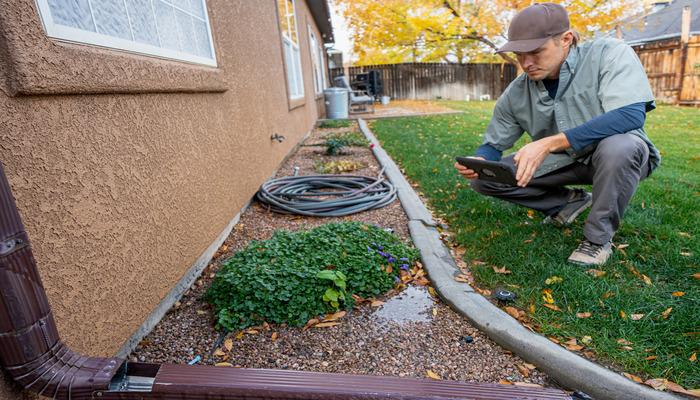Once you’ve found a home that meets your initial criteria, it’s time for a house tour. Touring a house takes you past the listing information and into the heart and soul of a property. Photos and videos are helpful, but the best way to get a real sense of the house is to see it for yourself.
While there’s no standard way to investigate a home, it’s important to know exactly what to look for when touring a house. You’ll likely visit several different homes, so establishing a process that works for you is a crucial time and energy saver.
What are some questions to ask when touring a house?
When touring a home, it's essential to gather as much information as possible to make an informed decision. Start by asking about the age of the property and any recent repairs or renovations, as this can indicate the likelihood of future maintenance needs.
Understanding the seller's motivations for selling can unveil important aspects of the property. For example, a job relocation implies a different scenario compared to problems with neighbors. In the case of a homeowners association (HOA), it's important to understand the fees and any rules or restrictions involved
Examine the condition of essential systems like the roof, HVAC, plumbing, and electrical. Additionally, ask about any history of pest infestations or water damage, which could cause ongoing problems. Lastly, ensure clarity on which appliances or fixtures are part of the sale to prevent future misunderstandings.
Bringing a house-hunting checklist of these points can be a helpful way to ensure you cover everything important during your tour.
Answer a few questions below to speak with a specialist about what your military service has earned you.
11 Tips for Viewing a Home
During your home search, i's important to prioritize viewing homes that fit within your price range and what you can afford. Your real estate agent may suggest you tour a home outside of your budget but meets all your other requirements. However, it may just lead to disappointment.
Here are some tips to consider on your house tour to ensure you’re getting the best experience.
1. Give Yourself Time
Don’t try to cram a dozen home tours into an afternoon. You don’t want to feel rushed, especially when you land on a property you like. You also need to factor in the time it takes to get to each property. A good real estate agent can help you get the most from each tour.
2. Take Notes, Pictures and Measurements
Plan to bring a notebook or use your Notes app to record your reactions and questions. You can also ask your real estate agent if it’s okay to take pictures inside and outside the home.
There’s a lot to see, and odds are you won’t remember everything. Some buyers even like to sketch a simple floor plan before they leave, as it can be helpful when comparing properties later. It’s also a good idea to bring a tape measure, too. MLS listings will usually feature the dimensions of a home’s rooms, but it never hurts to double-check.
3. Consider Curb Appeal
Curb appeal is important to a lot of homebuyers. Take time to look past this initial “gut” reaction. Determine if you can improve a home’s appearance with a few simple projects or if a costlier fix would be in order.
Maybe you can spruce up the front of the home with light landscaping and maintenance. Don’t discount a home with a great location or other attractive features based solely on that first impression, especially if you could improve the curb appeal without spending a fortune.
4. Don’t Sweat Simple Fixes
Don’t let bad carpet, ugly wallpaper or outdated appliances and furniture chase you from a house that otherwise has a lot to offer. These aren’t always cheap fixes or replacements, but it’s obviously a lot easier to change carpet or appliances than a home’s location or lot size.
5. You’re Not Being “Nosy”
Open cabinets, doors and windows. Check out the closets and look under the rugs. It might feel like you’re being “nosy,” but consider it doing your due diligence. While you want to make sure the home meets your needs, you also don’t want to overlook any surprises, like a warped or stained floor hiding beneath a rug.
6. Keep Emotions in Check
Some sellers might just take a walk or hang out at the neighbor’s during your home tour. Avoid “oohing and ahhing” about the home’s features (or bad-mouthing them) if there’s a chance the seller might hear.
Wait until you’re back in the car with your agent to talk about what you loved and what you didn’t. The last thing you want is to compromise your negotiating position or offend the seller of your dream home.
7. Visit at Different Times
If you like a home enough to warrant a second showing, try to schedule it for a different time of day from the first. There are many things outside of the home to look for when choosing a neighborhood.
Get a feel for the traffic on a weekday morning and what that could mean for your commute. Are neighbors playing with their children outside or walking their dogs after work? Can you hear road noise or other sounds that maybe weren’t there on your first visit?
8. Understand the Condition of the Property
Homes are rarely in perfect condition, but some repairs are more costly and time-consuming than others. Don’t underestimate seemingly minor repairs. Keep an eye out for the condition of the following:
- Windows and doors: Do windows and doors open and close easily? Are windows and doors tightly sealed against drafts? Are sills and frames in good condition? Are window screens present and in good condition?
- Garage doors: Do garage doors open and close easily?
- Floors: Is the carpet in good shape? Are hardwood floors in good condition? Is vinyl flooring free from scratches/tears? Are tile floors intact and free of cracks and chips?
- Siding: Is vinyl siding free of mold and cracks? Is wood siding free of flaking paint?
- Walls and ceilings: Are walls and ceilings free from significant holes and cracks? Are there signs of lead paint (flaking) or water damage?
- Roof: What is the age of the roof? Do shingles appear to be in good condition? Are there any signs of a roof leak?
- Decks/porches: Are decks and porches in good condition? Is wood free from rot?
- Basement: Is the basement dry? Are there signs of water damage or leaks? Are there any noticeable cracks in the foundation?
- Insects: Are there visible signs of termites or other destructive insects?
9. Look for a Seller’s Disclosure
Home sellers are required to disclose information about issues with their property. Rules and regulations about seller disclosures vary based on where you’re buying. But these will typically document known problems with things like:
- Leaky roofs or basements
- Electrical, plumbing or other major system issues
- The presence of termites or other pests
- Rehab work completed by the seller
- Neighborhood nuisances
Sellers aren’t usually required to provide a disclosure until you’re under contract. But in some markets, sellers will leave a copy of their disclosure statement for you to peruse during a home tour. If you spot one while touring a home you like, review the disclosure in detail with your agent.
Potential buyers can use this information along with a home inspection to scrutinize the property and decide whether they want to move forward.
10. Ask About Utility Costs
When shopping for a home, also consider a home’s utility costs. Your real estate agent can obtain previous utility bills for any homes you are considering, which may help you decide whether it’s necessary to replace old appliances. Updating a home's appliances can help slash utility costs. Modern appliances are generally more energy efficient than older ones and may pay for themselves in utility savings.
Don’t forget to look beyond the kitchen when considering utility costs. Heating water is typically the third-largest energy expense in your home. If the gas water heater is more than 10 years old, it probably operates at less than 50 percent efficiency, according to the Natural Resources Defense Council (NRDC).
An aging air conditioning system can also inflate your utility costs. Your real estate agent can ask the seller for the age of the system if it isn’t provided in a seller’s disclosure. The NRDC estimates replacing a system that’s more than 10 years old could reduce your energy consumption for cooling by 20 percent.
11. Consider a VA Energy Efficient Mortgage
One way to finance some of your home’s energy efficiency improvements is through a VA Energy Efficient Mortgage. This specialized financing option provides all the benefits of a VA loan plus offers an additional allowance to improve a home’s energy efficiency. Buyers who qualify can add up to $6,000 to their loan amount to make certain energy efficiency improvements.
Acceptable improvements can include:
- Installing storm windows/doors
- Replacing a water heater
- Improving heating/cooling systems
- Installing insulation
- Adding weather-stripping or caulk
The exact amount you can obtain through an Energy Efficient Mortgage is based on a Home Energy Rating System (HERS) inspection. The HERS inspection analyzes your home’s current energy use and predicts the value of energy improvements. Lenders use this information to decide how much of an allowance is appropriate.
» CALCULATE: Calculate your VA Loan savings
Remember Your Priorities
You've already spent time narrowing down what to look for when touring a house. Think about the handful of genuine must-haves and hold them close. You might see all kinds of cool, new features as you tour more and more homes.
Preparing a house-hunting checklist will help you stay focused on what's most important. It’s also okay if those priorities shift as you look at more homes. Just be honest with yourself about needs versus wants.
Related Posts
-
 VA Appraisal RequirementsExplore everything a homebuyer needs to know about the VA appraisal, including the process, property requirements, pitfalls, termite inspections, water quality checks, appraisal fees, challenging a low appraisal and the differences between the VA appraisal and a home inspection.
VA Appraisal RequirementsExplore everything a homebuyer needs to know about the VA appraisal, including the process, property requirements, pitfalls, termite inspections, water quality checks, appraisal fees, challenging a low appraisal and the differences between the VA appraisal and a home inspection. -
 2024 VA Funding Fee: Complete Explainer with Charts and ExemptionsThe VA funding fee is a governmental fee required for many VA borrowers. However, some Veterans are exempt, and the fee varies by VA loan usage and other factors. Here we explore the ins and outs of the VA funding fee, current charts, who's exempt and a handful of unique scenarios.
2024 VA Funding Fee: Complete Explainer with Charts and ExemptionsThe VA funding fee is a governmental fee required for many VA borrowers. However, some Veterans are exempt, and the fee varies by VA loan usage and other factors. Here we explore the ins and outs of the VA funding fee, current charts, who's exempt and a handful of unique scenarios.


